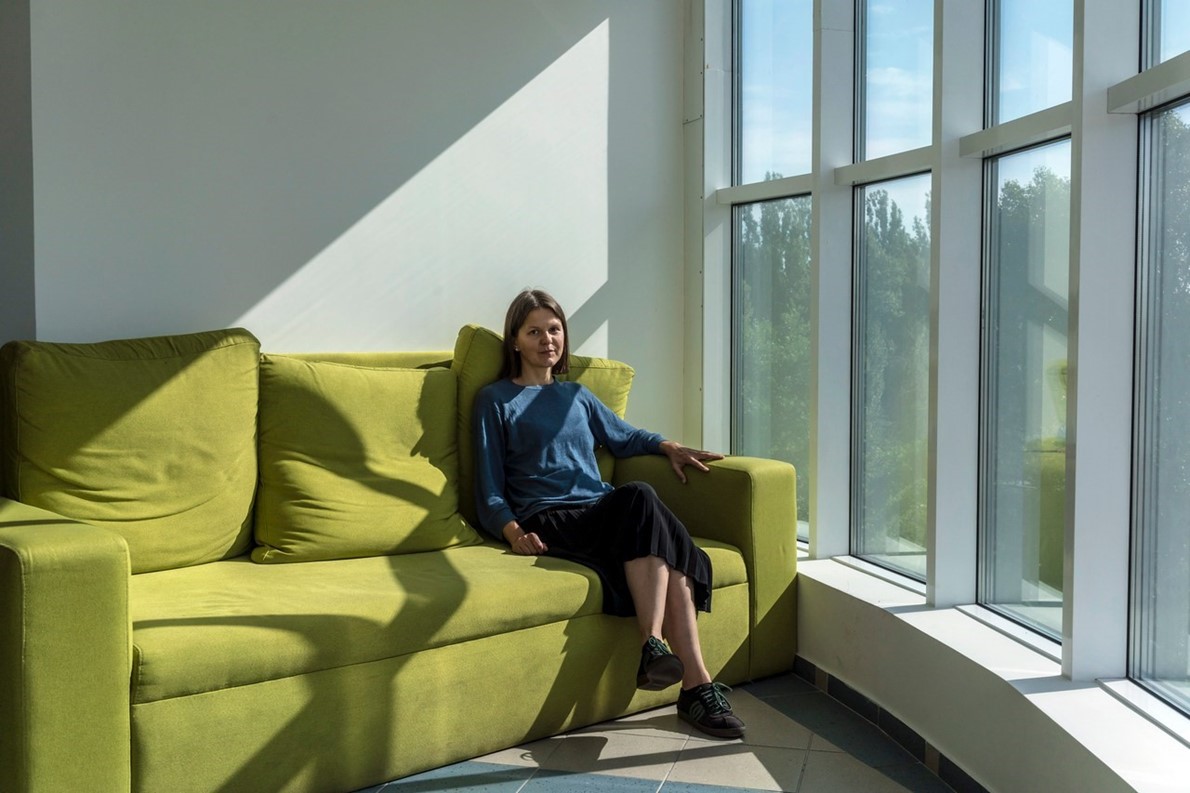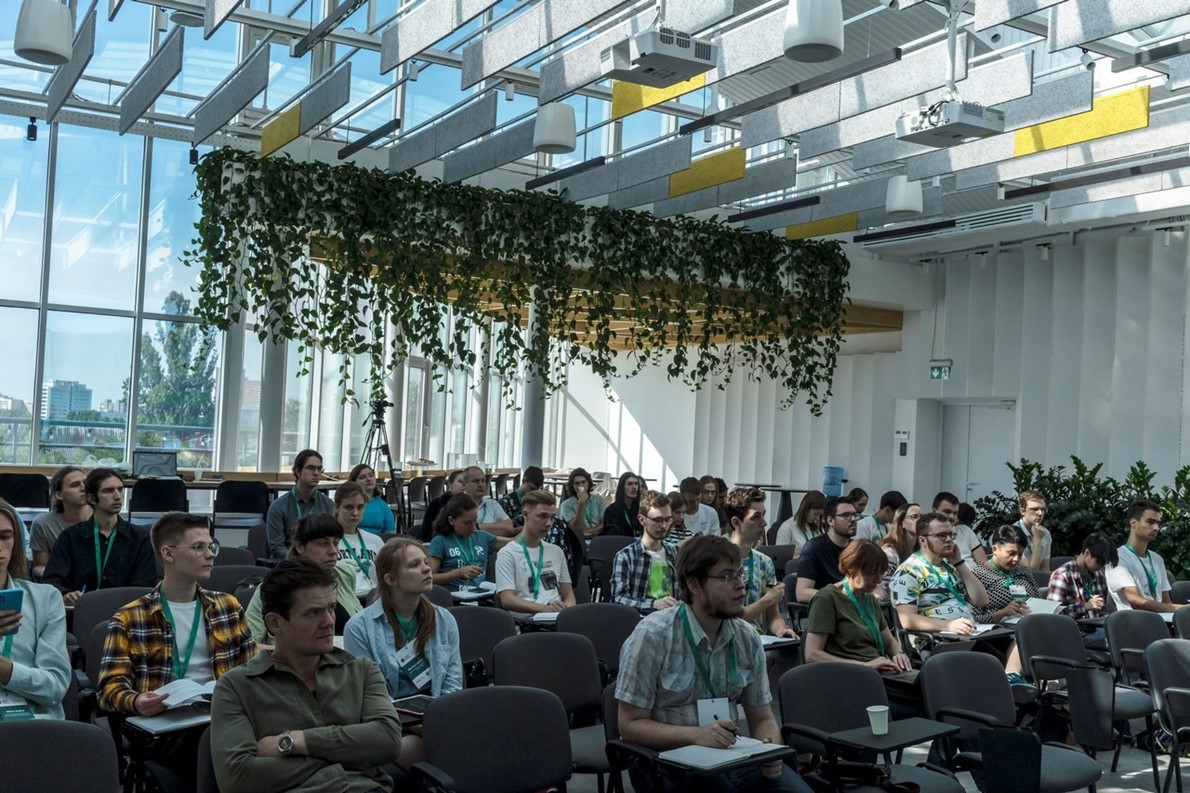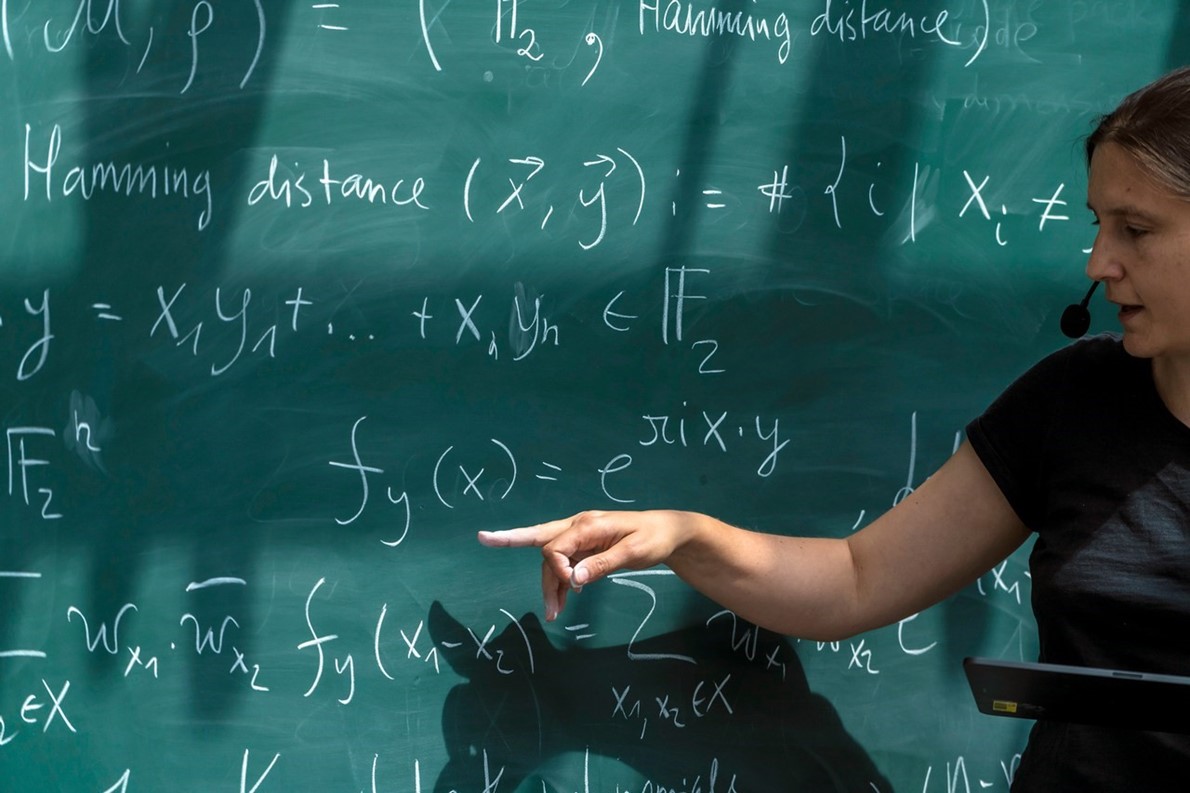On a Saturday evening in August, two
Ukrainian mathematicians, Maryna Viazovska and Masha Vlasenko, set out on a
19-hour train trip from Warsaw, Poland, to Kyiv, Ukraine. They were en route to
a conference titled “Numbers in the Universe: Recent Advances in Number Theory
and Its Applications.” Symbolically, the journey served to plant a flag.
اضافة اعلان
The event marked the opening of the
International Center for Mathematics in Ukraine, or ICMU, which was established
on paper in November. “The goal is to bring the world of mathematics to Ukraine
and open, or reopen, Ukrainian science for the world,” said Viazovska, of the
Swiss Federal Institute of Technology in Lausanne. She won a Fields Medal in
2022 and serves as scientific lead on the center’s coordination committee.
“Making this investment is of course
meaningful from a strictly scientific point of view,” said Jean-Pierre
Bourguignon, the chair of the center’s supervisory board and a former president
of the European Research Council, “but also in terms of how Ukraine can
redevelop after the end of the war in a way which is meaningful economically.
Highly trained mathematical people are going to be a key factor.”
The center’s first major donor, XTX
Markets, an algorithmic trading company in London, promised to match funds
raised up to 1 million euros for a year. So far, the French government has
contributed 200,000 euros.
 Masha Vlasenko, a professor at the Institute of
Mathematics of the Polish Academy of Sciences in Kyiv, Ukraine on Aug. 10,
2023.
Masha Vlasenko, a professor at the Institute of
Mathematics of the Polish Academy of Sciences in Kyiv, Ukraine on Aug. 10,
2023.
The center’s inaugural conference drew 75
participants at the Kyiv School of Economics, a venue chosen for its bomb shelter,
which was suitable for lectures and equipped with whiteboards, backup power and
internet. (The search is on for a permanent home in the city.) Simultaneously,
via live video, the conference proceeded in Warsaw, at the Stefan Banach
International Mathematical Center, where 110 participants attended. The
parallel locations were necessary since martial law prevented adult Ukrainian
men ages 18 to 60 from traveling outside the country, and the organizers were
hesitant to invite foreign participants into a war zone.
No Such Place Until Now
Vlasenko, from the Institute of Mathematics
of the Polish Academy of Sciences in Warsaw and a member of the ICMU
coordination committee, had long dreamed of creating a mathematics research
institute in Ukraine. The catalyst was the war, she said, coupled with
Viazovska’s Fields Medal. On the way to the conference — while waiting for a
midnight connecting train at the station in Chelm, Poland — the two scholars
had coffee with a few more conference-bound mathematicians and discussed
growing up in Ukraine studying mathematics.
“The generations change, but they have the
same feeling,” Vlasenko said. There is a deep tradition of science and math in
the country, but in the past several decades, in part because of underfunding,
there has been a massive brain drain, she said, as students and researchers
feel they must go elsewhere to advance.
Viazovska, who is originally from Kyiv,
attended the Technical University of Kaiserslautern in Germany for her master’s
studies. “I was very young, and it felt like an adventure,” she said. “I had
the idea I will go there, I will study, and then I will come back. I didn’t
realize that it was very difficult to come back.” She went on to do her
doctorate at the University of Bonn in Germany.
Vlasenko, who is also from Kyiv, received
her doctorate from the Institute of Mathematics of the National Academy of
Sciences of Ukraine and then was a postdoc at the Max Planck Institute for
Mathematics in Bonn. When she first saw the library there, “it turned my world
upside down,” she said. “There is no such place in Ukraine.” She added, “There
is no such place until now.”
 Participants listen to a lecture at the Numbers
in the Universe conference, the first hosted by the newly-formed International
Centre for Mathematics in Kyiv, Ukraine on Aug. 10, 2023.
Participants listen to a lecture at the Numbers
in the Universe conference, the first hosted by the newly-formed International
Centre for Mathematics in Kyiv, Ukraine on Aug. 10, 2023.
About three-quarters of the conference
participants were students and young mathematicians, and a series of
multilecture courses and problem-solving sessions was directed at them. In
Kyiv, Viazovska delivered four lectures on sphere packing. From Warsaw, Terence
Tao, of UCLA, and a 2006 Fields medalist, taught a course on prime numbers and
related topics.
“It was a surprisingly pleasant and normal
mathematics conference,” Tao noted in an email afterward. The focus was not the
war but the mathematics, he said, and the two sites shared lighthearted banter:
“‘Kyiv, do you have any questions?’ No, Kyiv understood everything. ‘Warsaw, do
you have any questions?’”
Yulia’s Dream
The conference’s youngest participants were
two students from Yulia’s Dream, a new online enrichment program for Ukrainian
high schoolers who excel in math.
The program is named in memory of Yulia
Zdanovska, a talented mathematician and computer scientist, and a teacher with
Teach for Ukraine, who was killed in March 2022 at the age of 21 during Russian
shelling in her home city of Kharkiv. Yulia’s Dream is organized through the
mathematics department at the Massachusetts Institute of Technology, as an
offshoot of a similar program for American students, the Program for Research
in Mathematics, Engineering and Science for High School Students, or PRIMES.
The goal is to expose students to the world
community of research mathematics by, for instance, connecting them with
early-career mentors in the United States and Europe. “Mathematics is often
misunderstood as a solitary endeavor,” said Slava Gerovitch, a historian of
science at MIT and the director and a co-founder of PRIMES. “One cannot be a
successful mathematician without being integrated into these international
networks for the exchange of knowledge.”
From 260 applicants to Yulia’s Dream last
year, 48 students were selected. They worked in small groups on reading
studies; some did nine-month group research projects and wrote papers for
submission to math journals.
“Now I understand better what real mathematicians
do,” said Maryna Spektrova, 15, of Kharkiv. Spektrova, who was a spare for the
Ukrainian team at the International Mathematical Olympiad this year, observed
that while such contests entail solving a problem in hours, research problems
can take months or years.
Ivan Balashov, 16, from Dnipro, found that
during the war, opportunities like the olympiad and Yulia’s Dream were
important for a student’s sense of achievement and confidence.
“Self-realization is one of the main concepts which makes the person freer,” he
said in an email. “After all, it is what we are fighting for — freedom.”
 Maryna Viazovska, a professor of mathematics at
the Swiss Federal Institute of Technology in Lausanne and a 2022 Fields
medalist, delivers remarks at the opening of the International Center for
Mathematics in Kyiv, Ukraine on Aug. 10, 2023.
Maryna Viazovska, a professor of mathematics at
the Swiss Federal Institute of Technology in Lausanne and a 2022 Fields
medalist, delivers remarks at the opening of the International Center for
Mathematics in Kyiv, Ukraine on Aug. 10, 2023.
Yehor Avdieiev, 18, said that the program
helped him cope. Finishing a long, hard problem was “the best feeling in the
world,” Avdieiev said last fall from his apartment in Berlin. (He noted that
math had long been a passion of his; at age 4, he liked to add license plate
numbers.)
As the war began, he was making plans to
attend V.N. Karazin Kharkiv National University, which suffered extensive
damage from Russian missiles in March 2022. “All my plans were ruined,” he
said. He relocated on his own to continue his mathematical education; that he
might be required to serve in the military was also a factor in the decision.
This year he is at the University of Bonn and studying remotely at Karazin
University, pursuing two mathematics degrees.
Dmytro Antonovych, 18, of Chernivtsi, is
now at Minerva University in San Francisco, where he intends to study
mathematics and data science. He attended the meetings on Zoom, at least twice
weekly, from his dorm room at Ipswich School in the U.K. Antonovych found the
program meaningful, he said, because “it gave me a vision of how I could use my
knowledge in mathematics.” And he appreciated the advice on how to succeed in
mathematical research provided by Pavel Etingof, a mathematician at MIT and the
chief research adviser and a co-founder of PRIMES. One of the tips Antonovych
especially liked: “Listen to your heart. As in all important things in life,
what you want and what you dream about is the most essential.”
‘An Opera House for Math’
On a Wednesday afternoon last month in
Kyiv, the conference began in a fifth-floor lecture room with a view of the
city. During a special session dedicated to the opening of the center, an air-raid
alert sent the attendees, including several dignitaries, into the basement bomb
shelter. A City Council member in attendance arranged a meeting the following
day with the mayor, Vitali Klitschko, a former world boxing champion with a
doctorate in sports science. Klitschko pledged his support for the project.
“He said that his mission is to make Kyiv
so beautiful that people come back, because many people have left during the
war,” said Vlasenko, who attended the meeting along with a group representing
the center. She had described the center to the mayor as “an opera house for
math.”
The conference atmosphere was “total
excitement,” Vlasenko recalled. “One could feel it.” Every talk prompted so
many questions afterward — “we let all questions go until there were no more
questions,” she said — that every day the schedule ran two hours over. Even the
problem-solving sessions went late, fueled by the energy of the students.
“It was very inspiring to see how
first-year bachelor students are solving problems in advanced topics in
mathematics,” said Olha Kharchenko, 23, who is in the second year of a master’s
program at the University of Duisburg-Essen in Germany. The conference was her
first time back in Ukraine since the war started.
Most of Kharchenko’s family is still in the
Russian-occupied city of Kakhovka, where a major dam was destroyed in June. She
already had hopes of returning to Ukraine for her career; the new center makes
it feel feasible. Eventually, postdoctoral and long-term visiting positions
would allow Ukrainian mathematicians like her to split their time between the
ICMU and other institutions.
During the conference, Kharchenko also
began thinking about returning sooner rather than later, before starting her
doctorate. She felt an urgency “to be present in Kyiv,” she said, “to
understand what is happening there and to make my small impact to the education
in Ukraine.” Maybe she would teach undergraduate students or children — things
were changing in the country so fast, she said, it was difficult to foresee
what the situation would be a year or so from now.
“It’s just my plan,” Kharchenko said. “I
don’t know what will be there.”
Read more Odd and Bizarre
Jordan News




